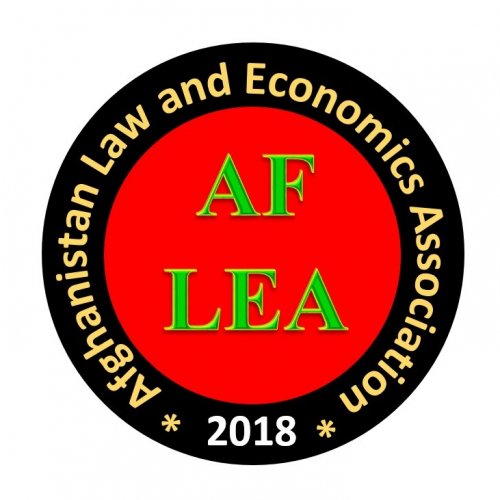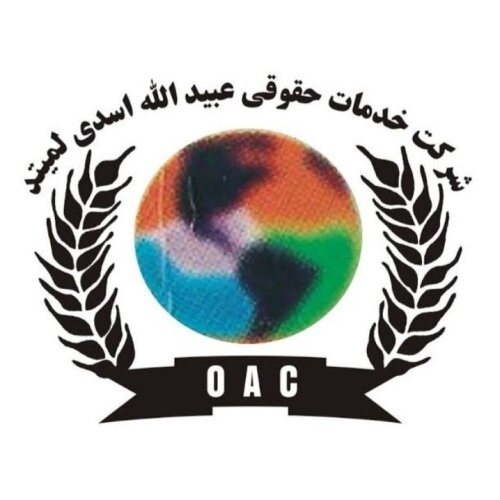Best Education Law Lawyers in Afghanistan
Share your needs with us, get contacted by law firms.
Free. Takes 2 min.
Or refine your search by selecting a city:
List of the best lawyers in Afghanistan
About Education Law in Afghanistan
Education Law in Afghanistan encompasses the legal principles and regulations governing the operation of educational institutions, the rights and responsibilities of educators and students, and the standards for educational quality. This body of law is influenced by the Afghan Constitution, ministry policies, and other legal provisions intended to ensure access to education for all children and to improve the quality of educational outcomes. Education law is crucial for maintaining order and fairness within the school system and for promoting educational access as a fundamental human right.
Why You May Need a Lawyer
There are several common situations where individuals or institutions might require legal assistance in the field of Education Law in Afghanistan. These include:
- Ensuring compliance with national and local education regulations.
- Addressing cases of disciplinary actions against students or staff.
- Dealing with discrimination or equal access issues.
- Handling legal disputes arising between parents/students and educational institutions.
- Interpreting policies related to special education needs or accommodations.
- Navigating challenges associated with curriculum and educational content.
Local Laws Overview
Key aspects of local laws relevant to Education Law in Afghanistan include:
- Constitutional Rights: The Afghan Constitution recognizes education as a right for all citizens. It mandates the government to provide free and compulsory education up to a certain level.
- Educational Governance: The Ministry of Education establishes policies and standards for schools and colleges.
- Gender Equality and Non-discrimination: Laws promote equal access to education regardless of gender, ethnicity, or background.
- Private and Public Education: Regulations concerning the operation of private institutions alongside public ones.
- Curriculum Standards: Legal frameworks about what educational curriculums must include and ensure quality education.
Frequently Asked Questions
What is the legal age for starting school in Afghanistan?
The legal age to start school in Afghanistan is typically six years old, at which point children are expected to enroll in primary education.
Are there laws protecting the right to education for girls?
Yes, Afghan law, supported by international conventions, protects the right to education for girls and aims to offer equal educational opportunities for both genders.
What are the legal rights of students facing disciplinary action?
Students have the right to due process, which includes the right to be informed of the charges against them, the right to a fair hearing, and the right to appeal disciplinary decisions.
Is education free for all students?
Education up to a certain level (primary and lower secondary) is free in public schools according to the Constitution, although there may be costs associated with materials and uniforms.
What should I do if my child is facing discrimination at school?
You should first report the matter to school authorities. If the issue isn't resolved, you can seek legal guidance to ensure your child's rights under anti-discrimination policies are upheld.
Can parents choose homeschooling for their children?
While not commonly practiced or widely legislated in Afghanistan, certain circumstances might permit homeschooling; however, it is advisable to consult legal guidance before making such decisions.
Are there legal protections for students with disabilities?
Yes, educational policies require accommodations for students with disabilities, ensuring they receive appropriate support as per the laws mandating inclusive education.
How are private schools regulated?
Private schools must comply with national educational standards and regulations set by the Ministry of Education, including licensing and curriculum requirements.
What provisions exist for higher education in Afghanistan?
Higher education institutions are subject to regulations by the Ministry of Higher Education, focusing on accreditation, standards, and access issues.
What steps can be taken if the school does not provide adequate educational resources?
If a school fails to provide necessary resources, parents or guardians can address their concerns with school management and, if unresolved, escalate the issue to the Ministry of Education.
Additional Resources
For individuals seeking legal advice or more information, the following resources may be helpful:
- The Ministry of Education of Afghanistan
- Legal aid organizations providing support in education-related cases
- International NGOs focusing on education rights and advocacy in Afghanistan
- Community legal aid clinics or university law programs offering pro bono services
Next Steps
If you require legal assistance in Education Law, consider the following steps:
- Identify the specific legal issue your case pertains to within the education field.
- Gather any relevant documentation or evidence related to your case.
- Contact a qualified lawyer who specializes in Education Law in Afghanistan for a consultation.
- Utilize resources such as legal aid organizations that may offer assistance or guide you further.
- Keep informed of any changes in the local education law that might affect your situation.
Lawzana helps you find the best lawyers and law firms in Afghanistan through a curated and pre-screened list of qualified legal professionals. Our platform offers rankings and detailed profiles of attorneys and law firms, allowing you to compare based on practice areas, including Education Law, experience, and client feedback.
Each profile includes a description of the firm's areas of practice, client reviews, team members and partners, year of establishment, spoken languages, office locations, contact information, social media presence, and any published articles or resources. Most firms on our platform speak English and are experienced in both local and international legal matters.
Get a quote from top-rated law firms in Afghanistan — quickly, securely, and without unnecessary hassle.
Disclaimer:
The information provided on this page is for general informational purposes only and does not constitute legal advice. While we strive to ensure the accuracy and relevance of the content, legal information may change over time, and interpretations of the law can vary. You should always consult with a qualified legal professional for advice specific to your situation.
We disclaim all liability for actions taken or not taken based on the content of this page. If you believe any information is incorrect or outdated, please contact us, and we will review and update it where appropriate.
Browse education law law firms by city in Afghanistan
Refine your search by selecting a city.









